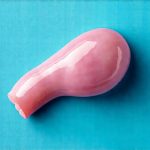The prostate gland, often overlooked in men’s health discussions, plays a vital role in urinary function and overall well-being. As men age, changes within the prostate are common, potentially leading to discomfort or more serious conditions. While genetics and lifestyle factors both contribute, increasingly research suggests a strong link between sleep quality and prostate health. Poor sleep doesn’t directly cause prostate issues, but it can exacerbate existing inflammation, disrupt hormonal balance crucial for prostate function, and compromise the body’s natural repair mechanisms. This creates a situation where the prostate is less resilient and more vulnerable to problems.
Establishing healthy evening habits isn’t about finding a magical cure; it’s about creating an environment that supports optimal bodily functions, including those impacting prostate health. It’s about recognizing the interconnectedness of sleep, hormone regulation, inflammation management, and overall lifestyle choices. A proactive approach focused on improving sleep quality and adopting supportive routines can empower men to take control of their well-being and potentially mitigate risks associated with prostate changes. This article will explore practical, science-backed evening habits designed to foster better sleep and contribute to a healthier prostate.
Optimizing Sleep for Prostate Health
Sleep is far more than just rest; it’s an active period of restoration and regulation within the body. During deep sleep stages, key hormones like testosterone are naturally released, which plays a role in maintaining prostate health. Furthermore, adequate sleep helps regulate cortisol levels – chronic stress elevates cortisol, contributing to inflammation that can negatively impact the prostate. Disrupted sleep patterns disrupt these delicate hormonal balances, increasing inflammation and potentially accelerating age-related changes within the gland. Creating a consistent bedtime routine signals your body it’s time to wind down and prepares you for restorative sleep.
The benefits extend beyond hormone regulation and inflammation control. Sleep deprivation weakens the immune system, making the body less capable of fighting off infections or addressing cellular damage. A compromised immune response can hinder the prostate’s ability to repair itself from everyday wear and tear, potentially exacerbating existing conditions. Prioritizing 7-9 hours of quality sleep each night is not a luxury; it’s an essential component of proactive men’s health management.
Finally, consider the impact of sleep apnea – a common sleep disorder where breathing repeatedly stops and starts during the night. Untreated sleep apnea can lead to chronic hypoxia (low oxygen levels) which is linked to increased inflammation and oxidative stress, both detrimental to prostate health. If you suspect you might have sleep apnea (loud snoring, daytime fatigue), consult with your doctor for diagnosis and treatment options. Considering a supportive diet through simple nutrition habits can also support overall wellbeing.
Dietary Choices & Evening Meals
What you eat in the evening profoundly impacts your sleep quality and, subsequently, your prostate health. Heavy, fatty meals close to bedtime can disrupt digestion and interfere with sleep onset. Similarly, excessive sugar intake can lead to blood sugar spikes that wake you up during the night. Instead, focus on lighter, more easily digestible meals rich in nutrients known to support prostate health. Foods containing lycopene, such as tomatoes, watermelon, and pink grapefruit, are particularly beneficial due to their antioxidant properties.
Crucially, hydration is key but timing matters. Avoid excessive fluid intake close to bedtime to minimize nighttime bathroom trips which disrupt sleep. Conversely, dehydration can also cause restlessness, so maintaining adequate hydration throughout the day is important. Incorporating foods with naturally occurring melatonin – like tart cherry juice or kiwis – may promote better sleep, however, moderation is crucial as excessive consumption might have unintended consequences. Remember that dietary changes are most effective when combined with other healthy habits, such as regular exercise and stress management. To further support your evening routine, consider low-trigger food habits to minimize discomfort.
Minimizing Blue Light Exposure
Blue light emitted from electronic devices—smartphones, tablets, laptops—suppresses melatonin production, making it harder to fall asleep and reducing sleep quality. This disruption isn’t just about difficulty falling asleep; it affects the depth of your sleep stages, diminishing the restorative benefits crucial for hormonal regulation and immune function. The impact on prostate health is therefore indirect but significant – a weakened body is less capable of maintaining optimal prostate function.
To mitigate blue light exposure:
1. Avoid screens at least one hour before bedtime. This can be challenging, so consider replacing screen time with other relaxing activities like reading a physical book, listening to calming music, or practicing meditation.
2. Use blue light filtering apps or glasses if you absolutely must use screens in the evening. These filters reduce the amount of blue light emitted from your devices, lessening its impact on melatonin production.
3. Adjust your device settings to activate “night mode” which shifts the screen color towards warmer tones.
Stress Management Techniques
Chronic stress significantly impacts sleep quality and prostate health through multiple pathways. As mentioned earlier, stress elevates cortisol levels, promoting inflammation and disrupting hormonal balance. Furthermore, stress can lead to muscle tension, making it difficult to relax and fall asleep. Unmanaged stress also compromises the immune system, leaving you more vulnerable to illness and hindering the body’s natural repair processes.
Effective stress management techniques are therefore essential for supporting both sleep and prostate health:
1. Mindfulness Meditation: Regular meditation practice can help calm the mind, reduce cortisol levels, and promote relaxation. Even 5-10 minutes of daily meditation can make a significant difference.
2. Deep Breathing Exercises: Simple deep breathing exercises activate the parasympathetic nervous system – your body’s natural “rest and digest” response – counteracting the effects of stress. Techniques like diaphragmatic breathing are particularly effective.
3. Gentle Evening Exercise: Light physical activity, such as a leisurely walk or yoga, can help relieve stress and promote better sleep but avoid vigorous exercise close to bedtime as it might have stimulating effects.
Creating a Sleep Sanctuary
Your bedroom environment plays a critical role in your ability to fall asleep and stay asleep. A dark, quiet, and cool room promotes melatonin production and creates a more conducive atmosphere for restorative sleep. Noise pollution can disrupt sleep cycles, while excessive light interferes with melatonin release. Temperature regulation is also vital – most people sleep best in a slightly cooler environment (around 65-68°F).
Consider these adjustments:
* Blackout Curtains: Block out external light sources to create a darker sleeping environment.
* White Noise Machine or Fan: Mask distracting noises and create a calming soundscape.
* Comfortable Mattress and Pillows: Ensure your bedding provides adequate support and comfort.
* Temperature Control: Use a thermostat or fan to maintain a comfortable room temperature.
Ultimately, prioritizing sleep-friendly evening habits is an investment in overall health – including prostate health. It’s not about quick fixes but rather consistent routines that promote restful sleep, hormonal balance, and immune function. By incorporating these strategies into your daily life, you can empower yourself to take proactive steps towards a healthier future. A focus on simple routines can help support long term prostate health. And don’t forget the benefits of staying hydrated with daily hydration maps.





















